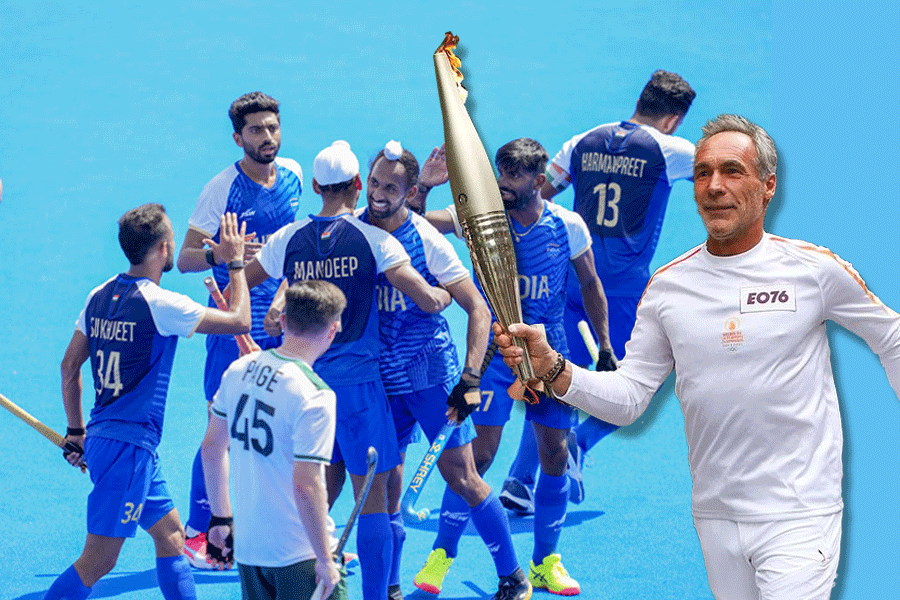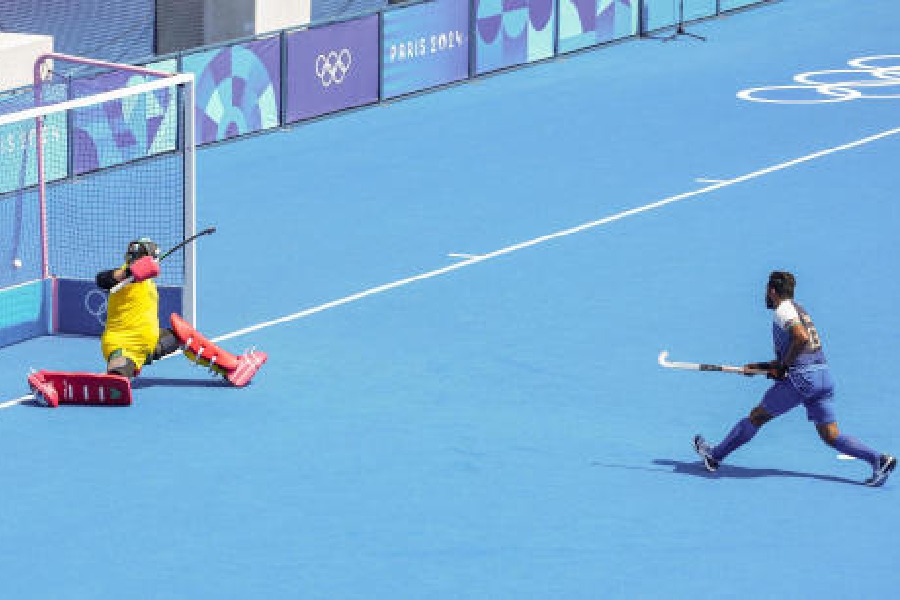From walking on Glacier 3000, the highest peak of Alps to cycling through breathtakingly beautiful Rougemont, Swiss 'life coach' Mike Horn forced the Indian men's hockey team to move out of their comfort zones with an aim to create bonhomie and overcome fears of failure.
Horn, an adventurer and explorer has worked with 2011 World Cup winning Indian cricket team, 2014 IPL winning KKR side and the 2014 World Cup football champions German outfit in his illustrious career.
So when Harmanpreet Singh and company touched base at his base in Switzerland for a three-day boot-camp, one expected him top push the envelope in his bid to bring in the requisite mental toughness ahead of Paris Olympics.
As India prepare for their quarter-final match, it seems that Horn's boot-camp has had its desired effect.
"Initially, there were some worried glances, but as we progressed, their confidence and camaraderie blossomed. The experience was as much a learning journey for me as it was for them," 58-year-old Horn told PTI while recollecting the reaction of the hockey players when they were asked to walk on the glacier.
"They embraced the challenges and supported each other, building a strong bond that would be crucial for their upcoming competitions," he said.
The elements of the boot-camp was specially customised to challenge the players both physically and mentally, the multi-faceted adventures like spending the first night in Saanen, a picturesque village in the Bernese Oberland region of Switzerland.
The second day involved a combination of cycling to Rougemont, a cable car ride, and tackling a via ferrata—a protected climbing route.
This mix of activities was aimed at testing the team's endurance and teamwork.
The day concluded with a cycle to Rossinière, where the team enjoyed traditional raclette, a traditional Swiss dish on cheese base while spending the night in a rustic farm setting, sleeping in hay at his friend's farm.
On the final day, the group remained in the area and engaged in rappelling down waterfalls, a thrilling activity that capped off the boot-camp.
These activities were not only physical challenges but also served as exercises in "mental resilience, teamwork, and trust." "Throughout the boot-camp, the team showed remarkable growth. Their determination and adaptability were inspiring, and it was gratifying to see how the camp helped them develop both individually and as a cohesive unit. This mutual exchange of learning and growth is what makes these boot-camps so special." 'ENJOY THE JOURNEY' The most successful team in India' Olympic hockey history, the men's team have 12 medals, including eight gold but they had to wait for 41 years for their last medal, a bronze which came at Tokyo three years ago.
"Given the high expectations for the team, especially as bronze medal winners at the Tokyo Games, my advice to them was to focus on their strengths and stay mentally resilient," Horn said.
"Overall, my advice centered on mental toughness, team cohesion, and embracing the moment, which are crucial for navigating the challenges of a high-stakes tournament like the Olympics," he added.
He recalled his experiences of working with Gautam Gambhir-led KKR.
"During the Kolkata Knight Riders' title win, these principles were crucial. Conquering big moments required mental strength and composure under pressure. We broke down challenges into manageable parts, maintained a positive environment, and reinforced the belief that each player's role was vital." Citing examples from his own life, Horn told players that for them failure means losing a medal but for him failure could lead to potential loss of life.
"Drawing from my life as an explorer, I often tell the players that failure for me means not just losing a game, but potentially losing my life. This perspective instills a heightened sense of urgency and focus.
"Sometimes, adopting a mindset where failure is not an option can be a powerful motivator, driving the team to give their absolute best as if everything depends on it. This intensity and commitment are often what it takes to achieve victory," he signed off.
Except for the headline, this story has not been edited by The Telegraph Online staff and has been published from a syndicated feed.











